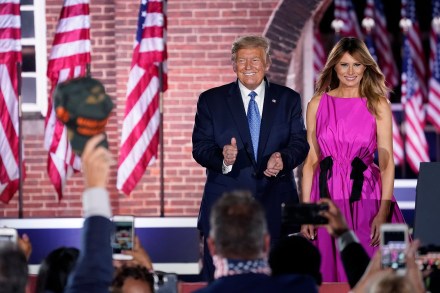Spectator Out Loud: Freddy Gray, Lara Prendergast and Emma Byrne
23 min listen
On this week’s podcast, Freddy Gray explains how Trump could still pull his greatest trick yet (00:45) Emma Byrne considers whether she will be bankrupted by the next housing scandal (12:30) Lara Prendergast argues that wearing floral masks isn’t worth the hassle. (19:11)





















